HOUSING in spain
hOUSING BASICS
One of the main predeparture concerns is finding a place to live. Having a place to call home, a good living environment, and somewhere to work are vital. Please note that Fulbright grantees are responsible for procuring their own housing for the duration of the Grant and the Commission will not be able to provide additional funding to cover costs incurred from a change in your living situation.
First, quickly review key points made by my colleague Ana Valenciano in our Housing Overview video:
- There has been a recent rise in rent prices due to the global housing crisis which complicates the housing search, but with the right advice, it is still possible to find something within your means.
- While rent is out of line with local Spanish salaries, it is important to remember that this crisis is happening in many cities in the U.S. and other countries around the world and is not unique to larger metropolitan areas of Spain. Affordable options exist, if you know where to look.
- The housing market in Spain operates on a very first-come, first-served basis. This means that you should NOT make any housing arrangements before you arrive and it’s essential to see the place in person before making any commitment to avoid scams. That being said, be prepared to make a commitment quickly when you find the right place for you.
TYPES OF HOUSING
For economical reasons, it is strongly recommended to rent a room in a shared apartment or flat (piso compartido). Additionally, shared apartments can help you better understand the way of life for locals, strengthen new friendships and connections, and ultimately facilitate your integration in the Host Community. Past grantees highly recommend living with Spaniards or Spanish-speakers to encourage linguistic and cultural immersion.
Renting a room in a shared flat:
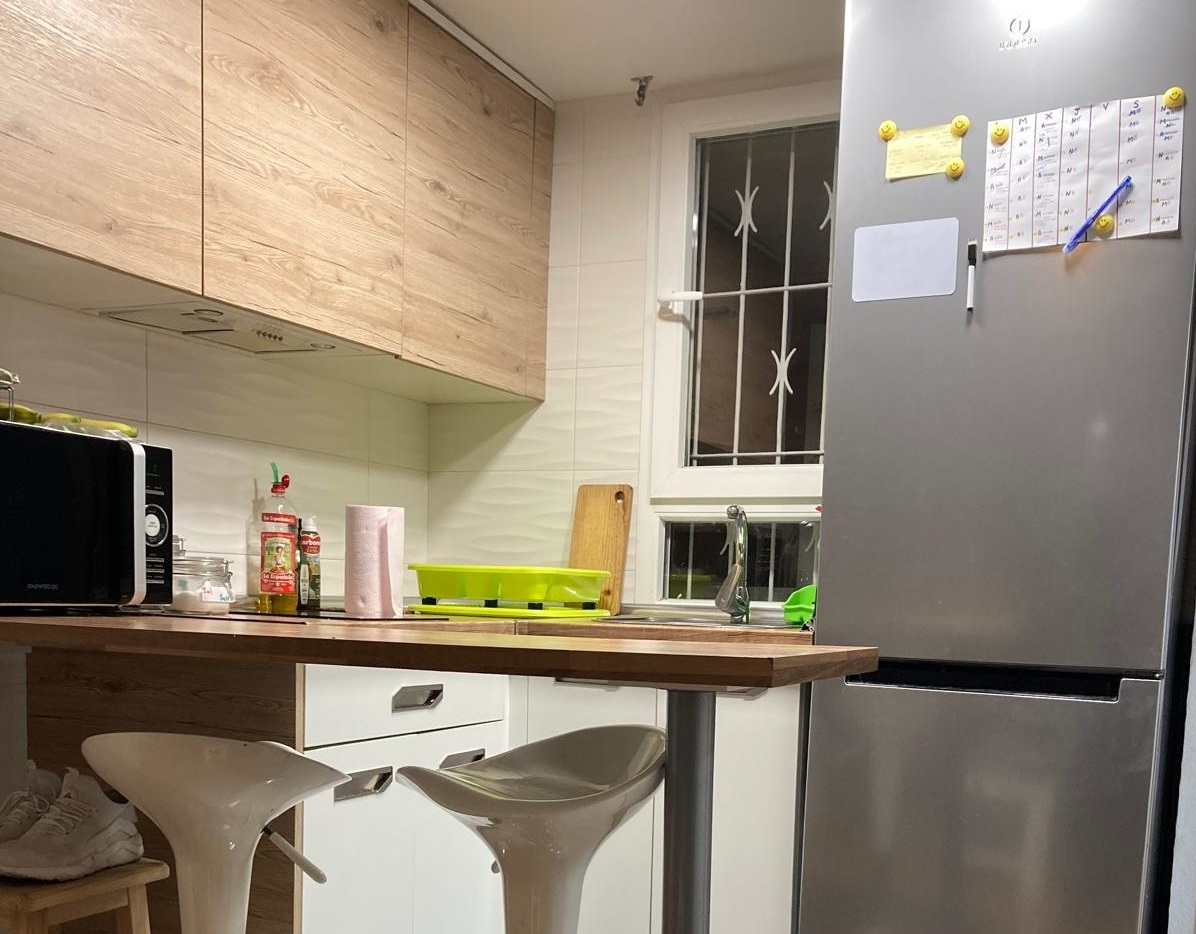
A shared apartment may help initiate social contact and cuts down on expenses. Ask about the number of people living in the apartment, how many share the bathroom, if everyone has access to the kitchen/living/dining area, if smoking is allowed, how laundry works, Internet, and how to pay utilities if they are included not in the rent. Ownership of any furniture should be clear from the beginning (in case a housemate leaves). Ask about such rules as entertaining visitors and cleaning the apartment. And don’t forget to check the water pressure! The decision to share an apartment will depend on your personality and priorities. In shared apartments it is much more common to sign a nine month or shorter lease, rather than committing to a full year.
Renting an entire apartment:
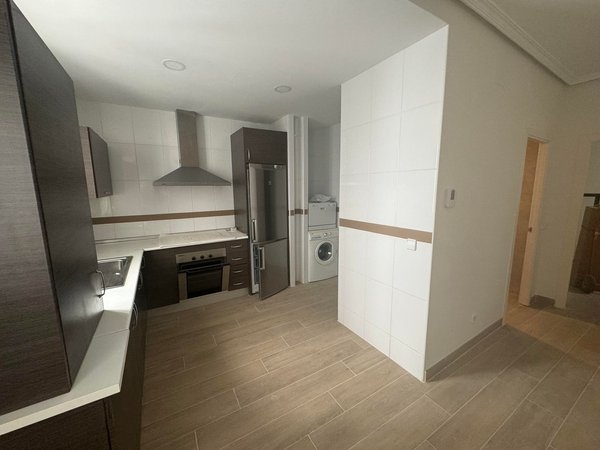
Having your own apartment will give you privacy and enough space, if you are a Scholar coming to Spain with your children. This tends to be much more expensive and entails signing a a full year lease, contracting your own WiFi service, possibly furnishing the apartment, and other expenses and responsibilities inherent to individual living. Almost all owners will ask you to sign a lease for the full year. Always ask what expenses are included in the basic monthly rent and how utilities will be paid – usually it is the responsibility of the tenant to contact the gas, water, and electricity to companies and put the bills, or facturas, under your name to be automatically paid out of your bank account. There may also be additional community of building maintenance fees if renting an entire apartment.
Renting a room in a family’s house/apartment:
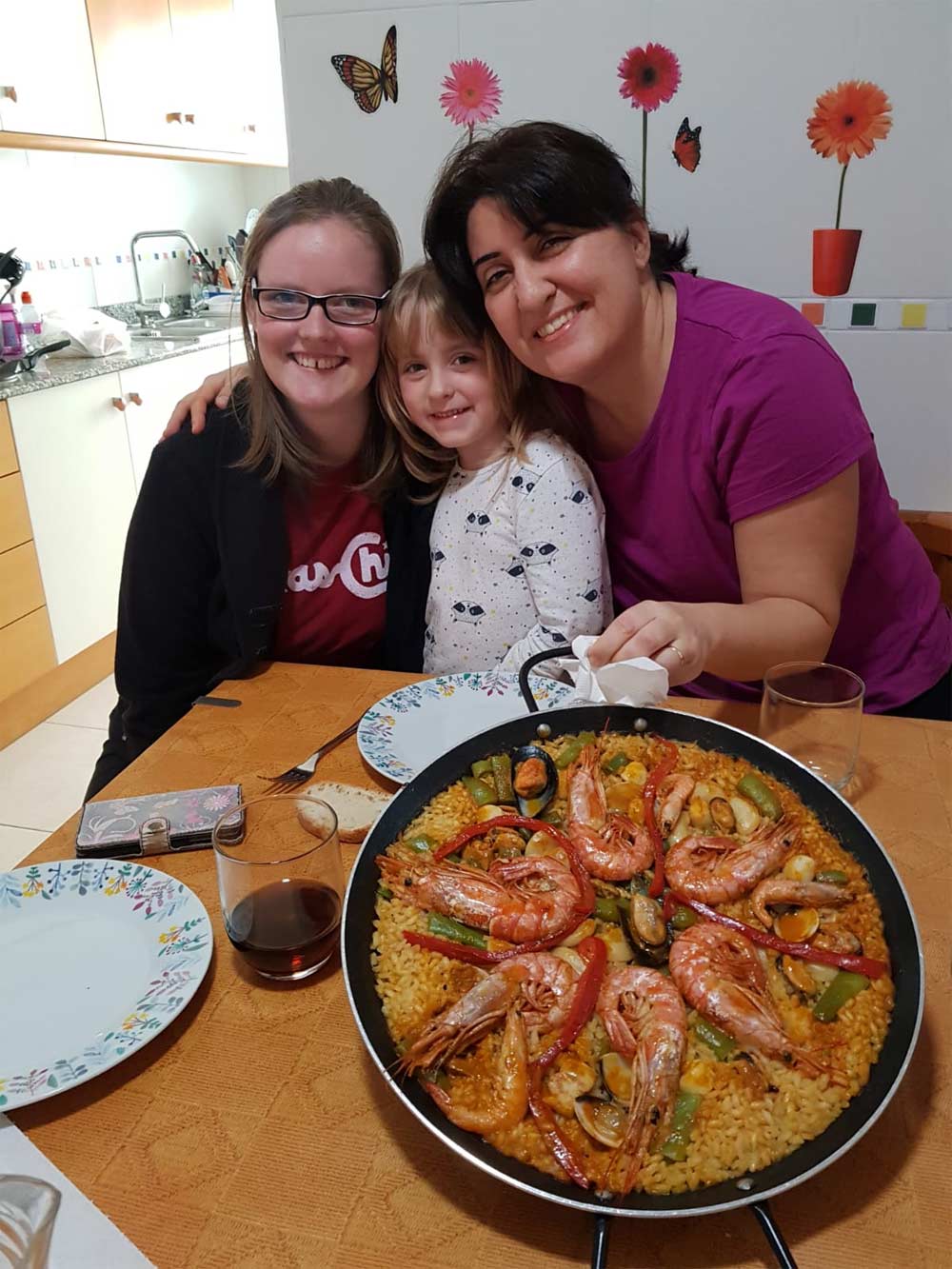
This may be similar to a host family you may have stayed with if you studied abroad. However, you may find it restrictive to do so as a family will have its own established house rules and schedules. You might not be able to have friends over nor have access to all of the areas of the house. There are also, of course, wonderful, open families. As a grantee, a huge benefit is that there is a lower cost associated with living with the host/host family, but in exchange, you may be expected to speak English with your hosts at least some of the time. If you are interested in the host family option, one platform you can use to search for accommodation is Homestay.com.
Residence halls (residencias or colegios mayores)
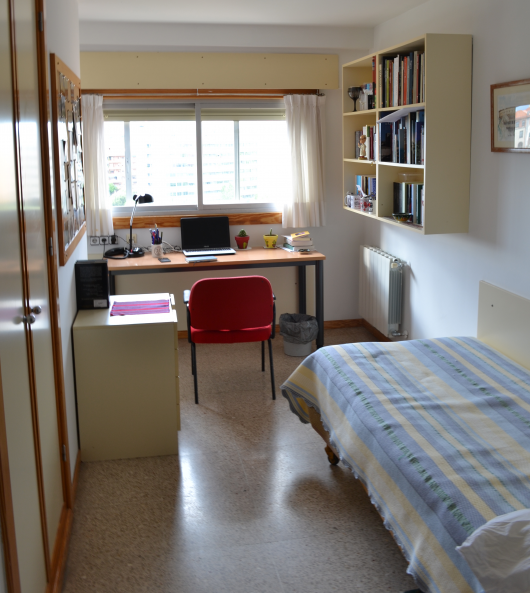
University dormitories or Student residences are another option, you may want to consider. This living arrangement is a good way to be in contact with Spanish university students and to gain a better understanding of campus life abroad. These residencias or colegios mayores may include laundry service and meals, though they tend to be more expensive than renting a room in a shared apartment. To find available university lodgings across Spain that you can contact about for prices, amenities, and services, please visit https://uniscopio.com/residencias/.
ONLINE RESOURCES:
One of the most useful tools for finding a place to live is online. The following websites are commonly used to advertise apartments and rooms for rent:
More appropriate for Senior Scholars throughout Spain: www.sabbaticalhomes.com
For short-term rentals while you search for your final living arrangements, try:
https://www.hostelworld.com/es/
www.booking.com (hotels and hostels)
OFFLINE RESOURCES:
If you are looking for housing in more rural areas of Spain, or struggling to find a flat in a big city using the online resources, past grantees highly recommend relying on local sources, such as bulletin boards, flyers, or members of your Host Community.
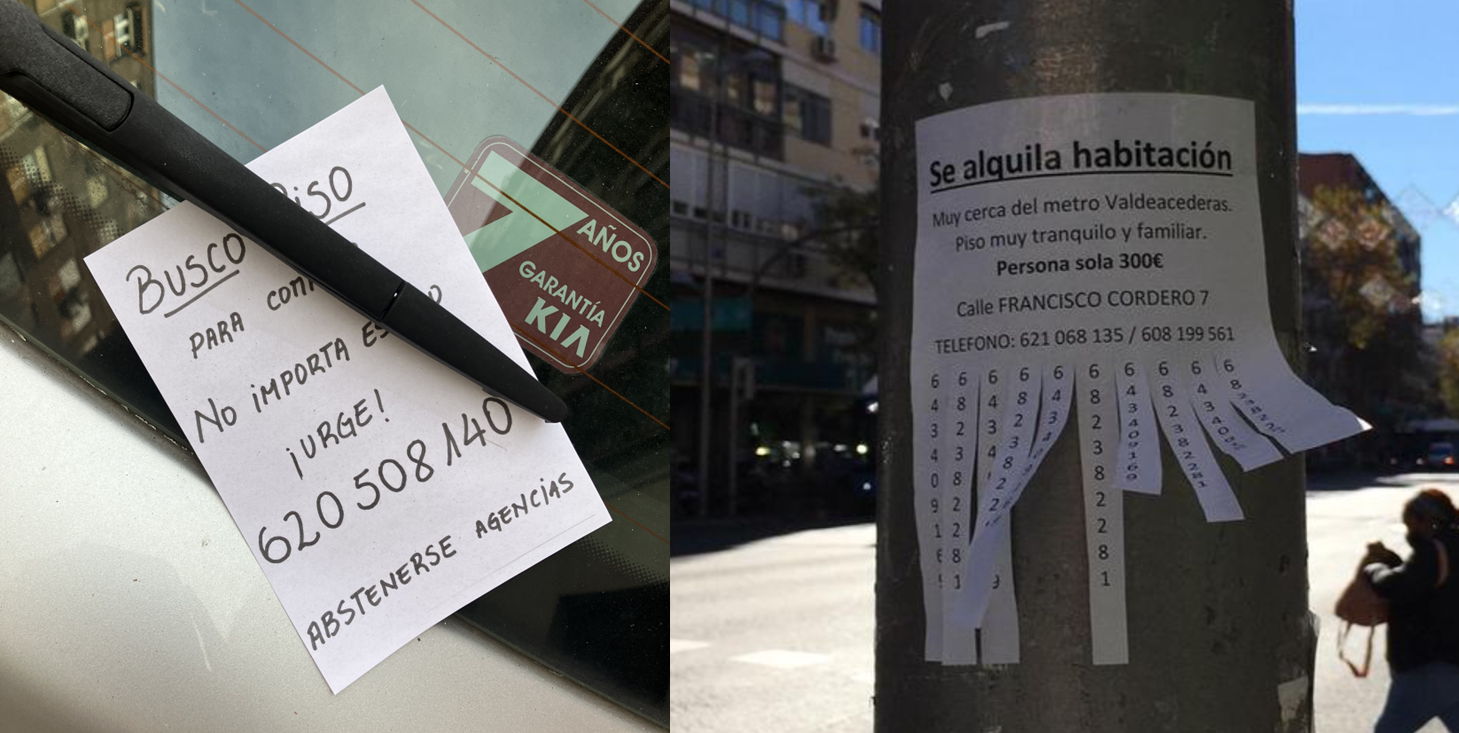
Rooms in shared flats are often advertised on second-hand websites like:
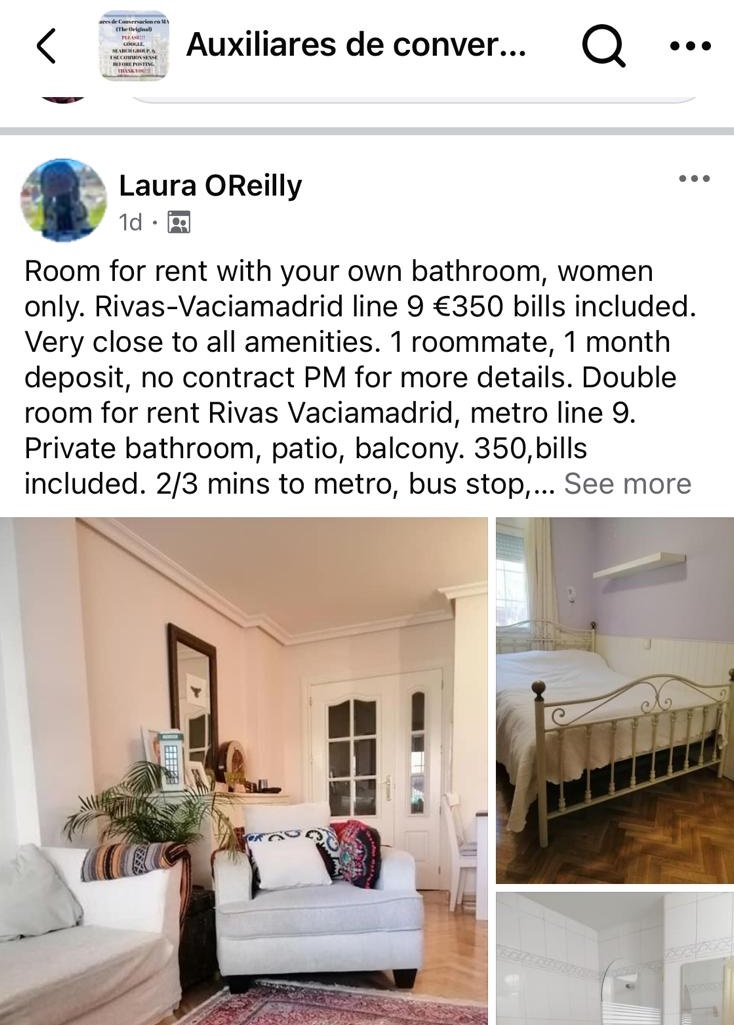
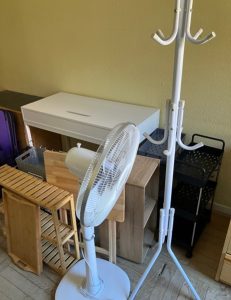 These same websites and social media groups are fantastic for finding extra furniture or room decor at a cheap price, and selling excess items at the end of the year. “TRASH TO TREASURE” or “FREE STUFF” Facebook Groups in certain regions and cities can also help you attain and get rid of items like these free of charge.
These same websites and social media groups are fantastic for finding extra furniture or room decor at a cheap price, and selling excess items at the end of the year. “TRASH TO TREASURE” or “FREE STUFF” Facebook Groups in certain regions and cities can also help you attain and get rid of items like these free of charge.
Additionally, there are tons of Facebook groups with names like these, ending in the name of your region or city:
- “PISOS DE PARTICULARES EN __”
- “PISOS Y HABITACIONES EN ALQUILER __”
- “ROOMS FOR RENT IN__”
- “AUXILIARES EN___”
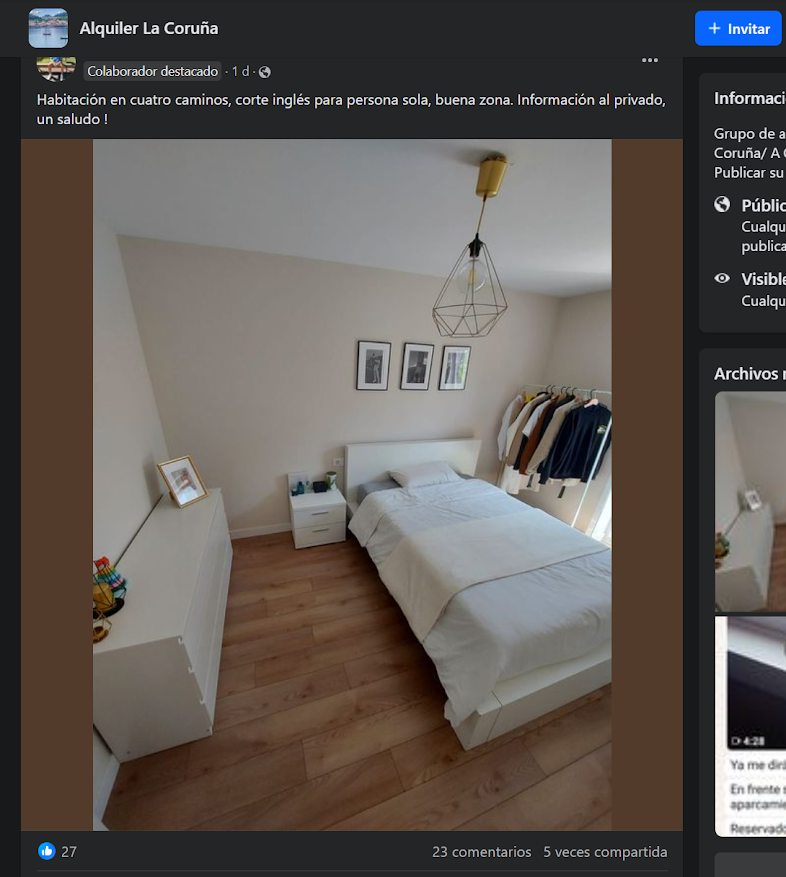
Idealista is often cited as the most popular online housing site, but there we highly recommend other sites as recently Idealista has been overrun by more scams for foreigners and “profesionales”
What is a profesional? if it says “profesional” – this means that it is an agency. If you go through a “profesional” or agency, you will most likely have to pay the first month’s rent plus a non-refundable agency fee, which tends to be another whole month of rent, if not multiple months of rent. Because of these additional fees, past grantees strongly discourage renting through agencies.
Instead, look for ads listed by a “particular” – When an ad says “particular,” this will be a private owner renting the place.
BEST PRACTICES
DO:
- DO walk around the neighborhood and consider proximity to public transportation and grocery stores
- DO understand that amenities in older European apartments vary greatly from what is common in the U.S.
- DO look for apartments or rooms rented by “particulares”
DON'T:
- DON’T rent an apartment or room, without seeing it in person first
- DON’T go through an agency, unless you are willing to pay significant agency fees
- DON’T pay a deposit without a signed contract or receipt demonstrating proof of payment
Advice from past grantees:
A NOTE FOR RESEARCHERS CONSIDERING LIVING IN MORE THAN ONE CITY:
A Predoctoral Researcher who lived in four (!) different cities during her grant has the following advice for those of you that may find yourselves in the same position:
“As for the housing search, I have been quite open with Spanish friends about my search for housing in these different places. While in some cases I ended up staying with friends or family of friends (Madrid and Seville), some of those situations turned out to be a bit more dubious than I had hoped. They often led to residing in an outsized property far below market price, but that property was often poorly cared for and lacked some essentials (ex. WiFi and functional washing machine, etc.) without giving me any way to install these on my own or insist that the landlord hold up their side of the bargain. So, after all was said and done, the best path has been booking places through Airbnb months and months in advance.
Planning several months out made the prices much lower, and I could be sure that I could insist that the host hold up their side of the deal. This, of course, also comes with problems (my piso in Barcelona is very nice but on a street filled with prostitutes about which I knew very little in advance…) but has generally worked well. I generally stay in a shared space – the cheapest option with WiFi, good hygiene, etc.
I can also imagine holding down an apartment in Madrid for the year, leaving my luggage in one place, and commuting for research weeks. Ultimately, I don’t think the price would have been that different in the end.”
ADVICE ON LIVING WITH FELLOW FULBRIGHTERS:
An English Language Assistant in Canarias who found a flat using the Online Resources:
“We found our piso on idealista. I lived with four other Fulbrighters. We got very lucky because the first house we toured was an amazing location, an affordable price, and came with a very kind, flexible landlord. However, I do regret living with other Fulbrighters and wish I branched out at the beginning to look for housing with locals (though fewer Canarians our age move out of their parents house until much later).”
ADVICE FOR PEOPLE STUGGLING TO FIND A ROOM TO RENT:
An English Language Assistant in Galicia who found a flat using the Online Resources:
“If you’re having trouble finding an empty room in an occupied piso, I would definitely recommend considering finding an empty piso on your own and filling it with roommates yourself. It’s competitive trying to find a room in an occupied piso, so imagine all the freedom that gives you when other people are ‘competing’ for the room you posted! I’d also recommend trying to find a piso where you don’t pay community fees. We ended up paying a lot more each month because we didn’t know what that was when we signed the contract.”